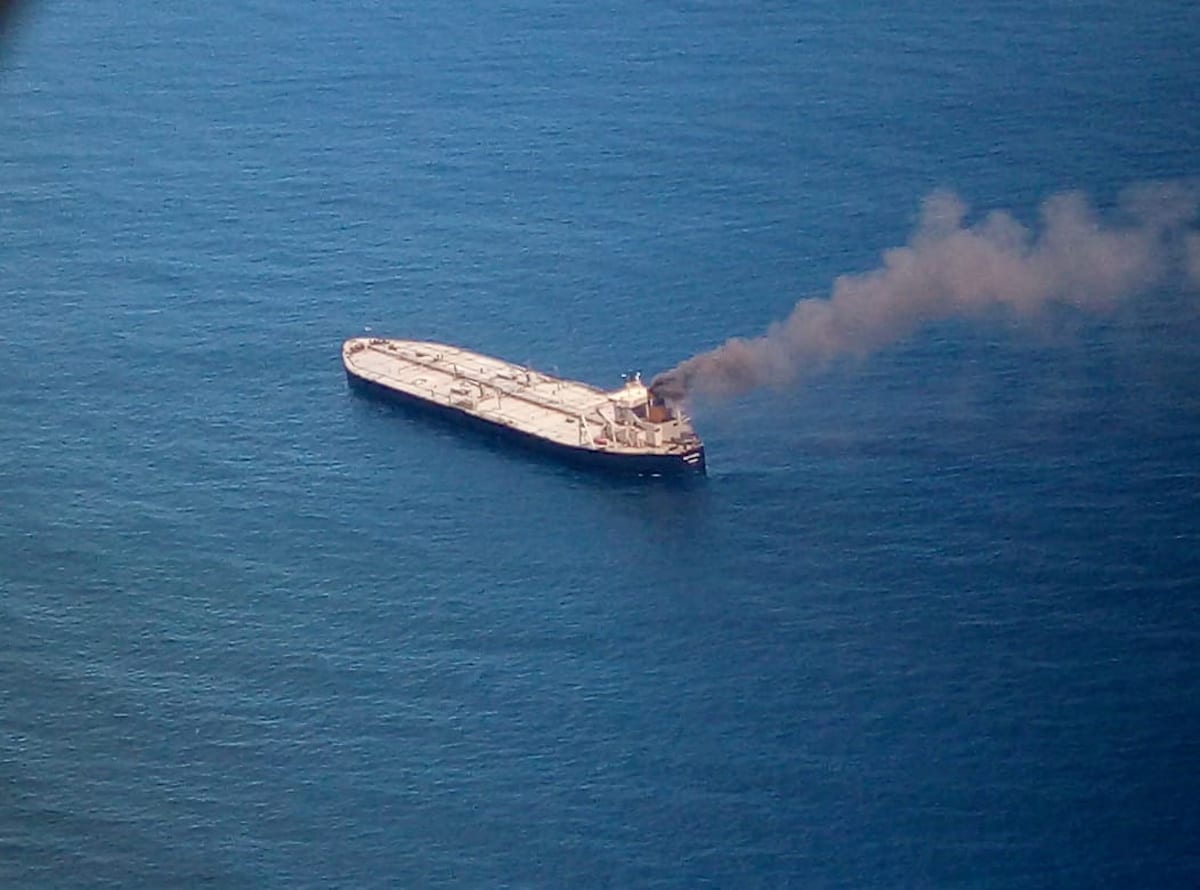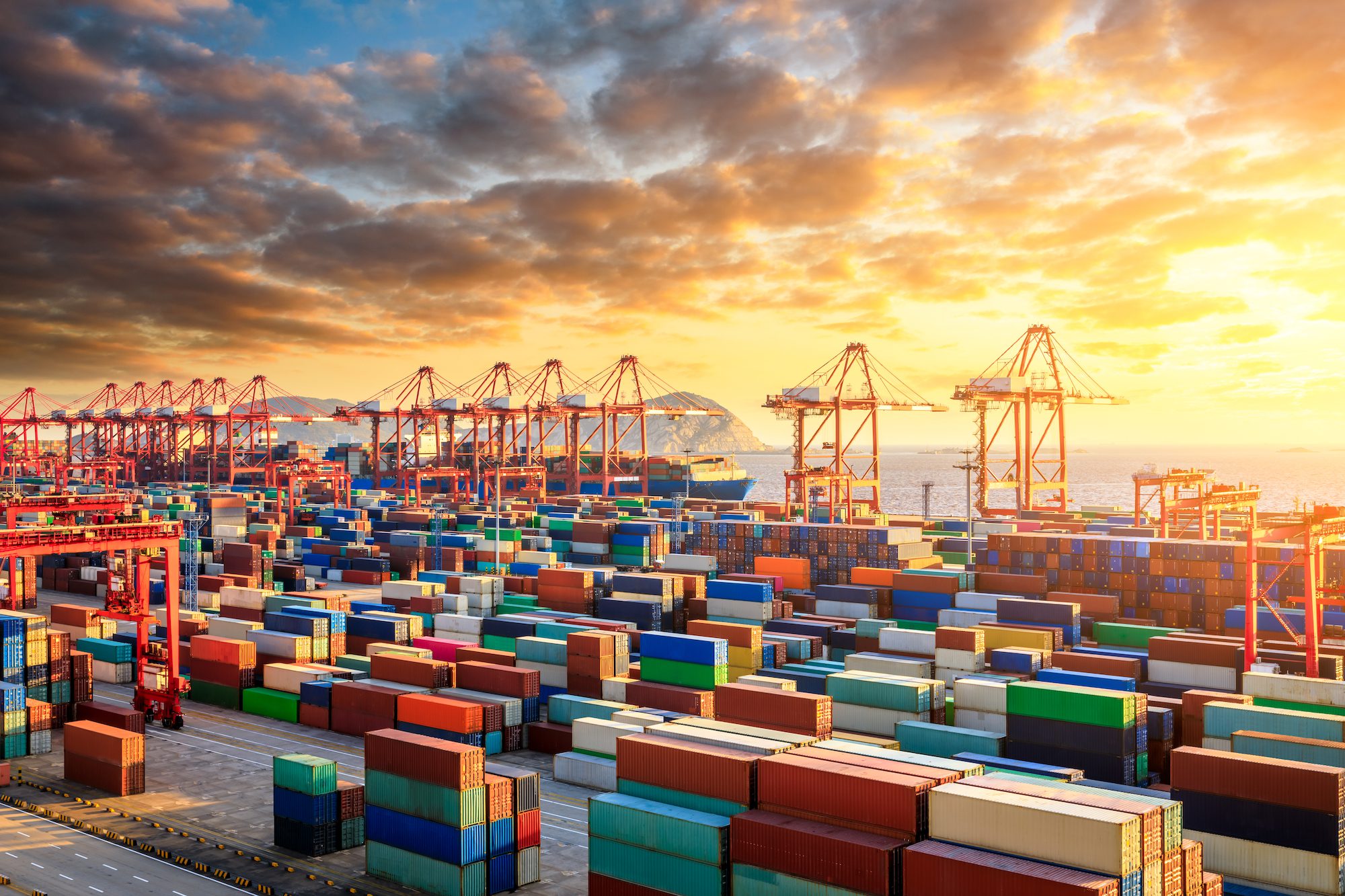The New Diamond, carrying the equivalent of about 2 million barrels of oil, is seen after a fire broke out off east coast of Sri Lanka September 3, 2020. Sri Lankan Airforce media/Handout via REUTERS
A bulk carrier runs aground in Mauritius, spilling 1,000 tonnes of bunker fuel resulting in an environmental catastrophe. Forty crew members from a livestock ship perish after the ship capsizes and sinks in heavy weather. A VLCC carrying 2 million barrels of oil suffers a fatal engine room fire and remains in trouble off Sri Lanka.
The recent spate of shipping casualties cannot simply be chalked up to bad luck, says Seafarers’ Rights International, an independent pan-industry center dedicated to advancing the interests of the world’s seafarers.
Instead, the incidents should be considered as reflective of the failure of governments to treat seafarers as key workers during the COVID-19 pandemic, which has left some 300,000 seafarers stranded at sea, working on expired contracts and unable to be repatriated due to government-imposed travel restrictions.
The SRI points out that the failure to treat seafarers as key workers is having devastating effects on individuals, who are now at risk of being caught in a perfect storm of exhaustion, accidents, and even unfair criminal investigations.
“The response to this seems to be to blame the seafarer,” says Deirdre Fitzpatrick, Executive Director of SRI. “The spotlight should be on how the industry responds to these recent casualties. Has COVID-19 played a part in these situations? Will there be fair investigations – as mandatorily required under the IMO Code for Safety Investigations – so lessons can be learned to prevent further tragic loss of seafarers’ lives and damage to the marine environment?”
Brian Orrell, Chairman of the Board of SRI, agrees. Orrell has led the seafarers in the joint IMO/ILO negotiations that produced the Guidelines on the Fair Treatment of Seafarers in the Event of a Maritime Accident and in the negotiations that resulted in the Maritime Labour Convention.
“If there ever was a time for fair treatment of seafarers, that time is now. Fair treatment of seafarers following casualties and in working conditions are based on international standards that must be followed even in very difficult times,” he says.
The recent spate of maritime casualties should re-ignite the debate on how serious the industry is about reducing the number of reported shipping incidents and tackling slow or non-existent investigations into maritime casualties, according to SRI Advisory Board Member Dave Heindel, Chairman of the ITF Seafarers’ Section, and Jacqueline Smith, the ITF Maritime Coordinator.
“Massive decreases in shore leave and onshore medical treatment are being accompanied by inordinate periods of service on board contrary to rights of seafarers under the Maritime Labour Convention. This leads to chronic fatigue. And that exposes the safety of crews and the protection of the marine environment to much greater risks,” said Smith.
Shipping Accidents
While the shipping industry has actually witnessed a downward trend in the number of shipping casualties over the last decade, experts fear this trend could be reversed if the on-going crew change crisis is not resolved soon.
While it should be noted that a number of countries have made progress in repatriating seafarers, the rate of progress is not keeping pace with the backlog of ships requiring crew changes, according to the International Maritime Organization.
IMO Secretary-General Kitack Lim this week warned that the humanitarian crisis taking place at sea requires urgent action from governments and he reiterated his call to all Member States to designate seafarers as key workers, as well as implement IMO-approved Protocols to allow for safe and secure crew changes.
“Seafarers cannot remain at sea indefinitely,” said IMO Secretary-General Kitack Lim, adding that solving the crew change crisis will take a “whole of government” approach.
“If the crew change crisis is not resolved soon, ships will no longer be able to operate safely pursuant to the Organization’s regulations and guidelines, further exacerbating the economic impacts of the COVID-19 pandemic.”

 Join The Club
Join The Club











